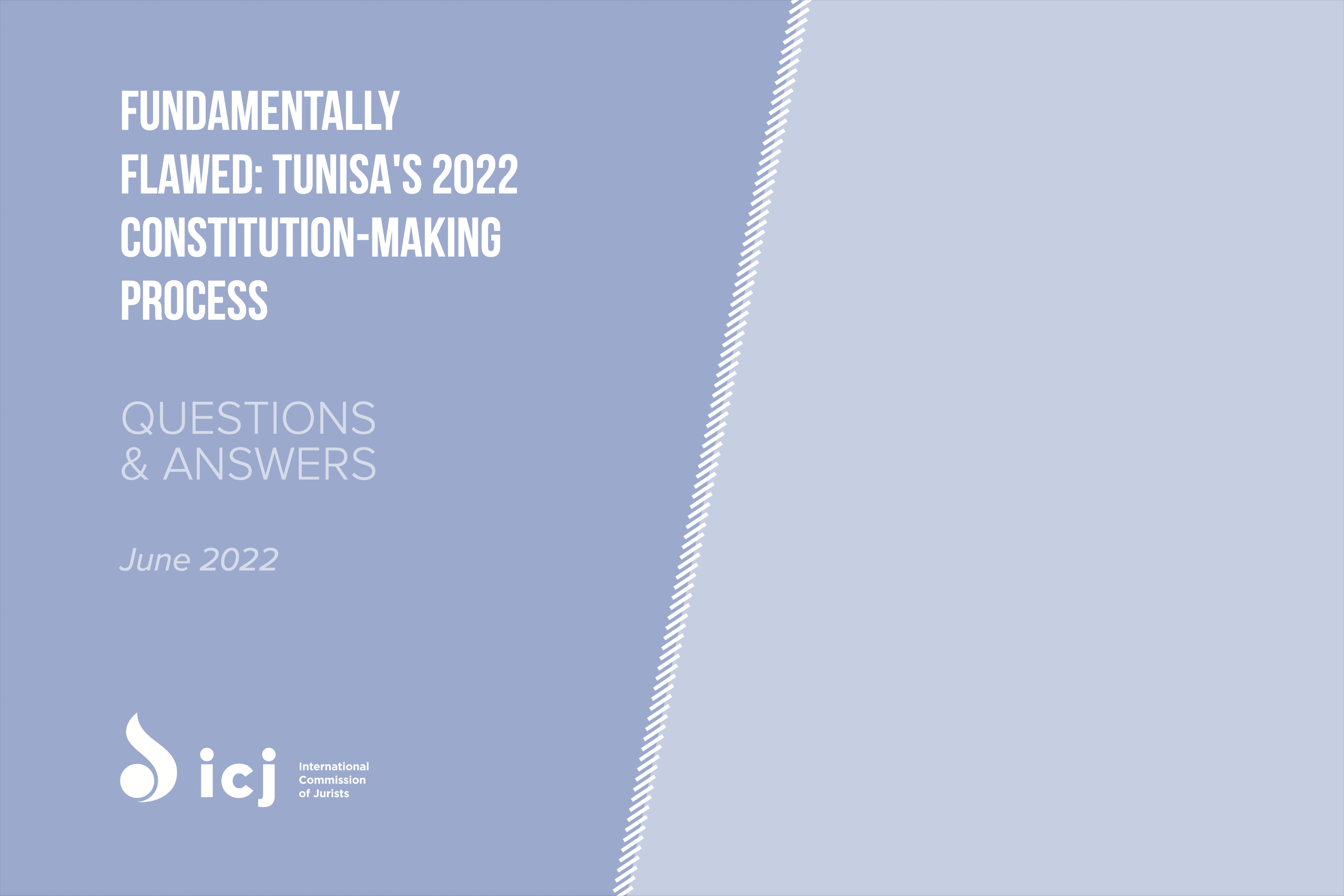Tunisia’s President, Kais Saied, has instigated and set in motion a process aimed at replacing the country’s existing consensus-based 2014 constitution in a way that is devoid of any legal basis, democratic legitimacy, inclusivity, accountability and transparency.
In a briefing published today, the International Commission of Jurists (ICJ) expresses its profound concern at the possible supplanting of the 2014 constitution with a new constitutional text in a manner that is bereft of the essential hallmarks of an effective consensus-based process and that, therefore, violates Tunisia’s existing constitution and legal obligations under international human rights law and standards on the right to participate in public affairs.
“Behind closed doors, an illegitimate committee drafted the proposed constitution that is supposed to replace the 2014 constitutional text,” said the Director of the ICJ’s Middle East and North Africa Programme, Said Benarbia.
“The whole process makes a mockery of the rule of law and of the right of Tunisians to choose their constitution.”
In light of the country’s existing 2014 constitution and its binding obligations under international human rights law, the ICJ’s question-and-answer (Q&A) briefing examines Tunisia’s 2022 “constitution-making process”, analysing its four phases, namely, the online public consultation; the drafting process; the national dialogue; and the preparations for the forthcoming 25 July referendum on the proposed constitution.
Throughout the 2022 “constitution-making process”, Tunisia has been under a “State of Exception”, without any parliamentary or constitutional oversight, an independent elections commission, or a Constitutional Court.
”Given the circumstances, no constitutional revision – let alone dispensing with the existing constitution and replacing it with a new one – could possibly take place in Tunisia in a way that complies with the rule of law and the separation of powers,” added Benarbia.
“The authorities should withdraw the draft constitution, end the state of exception, and re-establish the constitutional order.”
The briefing features additional recommendations, including the need to ensure that:
- any future replacement or revision of the constitution be lawful, inclusive, participatory and transparent, involving all Tunisians and their representatives, and allowing public and meaningful debate’.
- any such process be conducted outside the framework of the “State of Exception”, with the involvement of all legitimate, legally constituted authorities and constitutional bodies, including an independent electoral Commission.
Furthermore, the ICJ calls on the international community to:
- Urge the withdrawal of the draft constitution and stress the need to ensure that any process to replace or revise it comply with the procedural framework guaranteed in article 144 of the country’s existing constitution, namely, parliamentary and Constitutional Court oversight of the process, and with international human rights law and standards on the participation of the eligible electorate in public affairs, including in any “constitution-making processes”; and
- Monitor the referendum.
Download this briefing in English, in Arabic, or in French.
Contact
Said Benarbia, Director, ICJ Middle East and North Africa Programme; t: +41 22 979 3817, e: said.benarbia(a)icj.org
Catriona Harris, Legal Adviser, ICJ Middle East and North Africa Programme; e:catriona.harris(a)icj.org
Asser Khattab, Research and Communications Officer, ICJ Middle East and North Africa Programme; e: Asser.Khattab(a)icj.org




